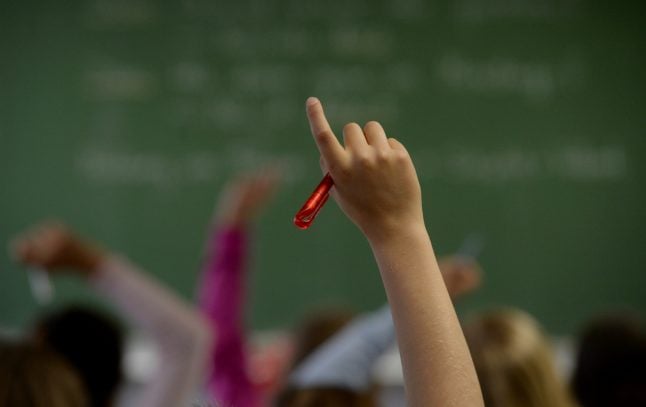Both countries are aiming to reach an agreement that will make the founding of these schools possible, according to German daily Süddeutsche Zeitung, citing information from the German Foreign Office.
The schools would operate in a similar vein to the three German schools already established in Turkey's Ankara, Istanbul and Izmir, the report said.
Berlin, Cologne and Frankfurt am Main, where many Turkish nationals and people of Turkish origin live, are being discussed as locations for the schools.
However, Turkey, like other foreign countries, is not allowed to act as a school authority in Germany itself. Private organizations would have to assume this role.
According to the report, negotiations have been underway since last summer. The states of Berlin, North Rhine-Westphalia, and Hesse are also involved.
The talks were said to be triggered by the temporary closure of the German school in Izmir by the Turkish authorities a year earlier. The Turkish Ministry of Education had justified the measure by saying that the school lacked a legal basis.
According to the German Foreign Office, the planned agreement with Turkey now aims to “secure the legal basis for the German schools abroad in Ankara, Istanbul and Izmir”.
Turkish schools to be treated like 'alternative' schools
According to reports, Turkish schools in Germany would be operated as 'alternative' or 'replacement' schools – in a similar way to Waldorf Schools, for example. This is the term used to describe private schools that are allowed to choose their own teaching methods and employ staff, but which provide learning content equivalent to that in public schools.
READ ALSO:
- State by state: Why more children are going to private school in Germany
- What to know about the different types of schools as an expat parent in Germany
They require a state permit and are subject to the laws of the respective state. Children and young people can attend compulsory school there – in contrast to so-called supplementary schools which provide additional coursework. Alternative schools are largely publicly financed.
This legal framework is suitable for counteracting possible concerns that the schools would give the Turkish government, which is led by President Recep Tayyip Erdoğan, the opportunity to exert influence on Turkish and Turkish-origin pupils in Germany, according to reports.
Peter Heidt, Bundestag member and Free Democrats (FDP) chairman of the Human Rights Committee, said the Foreign Office must “ensure that Turkish schools in Germany do not become a gateway for Erdoğan's ideologies”.
Heidt told the Süddeutsche Zeitung that nothing should be taught at Turkish schools in Germany “that contradicts our interests and liberal values”.
At the moment it’s already possible for Turkey to support private schools in Germany through their sponsors. The new agreement is being established so that there's clarity for both sides over the conditions under which private schools can be operated in the respective other country.
A draft agreement is currently being examined by the states involved, but it's not known when the negotiations will be concluded.
About three to four million people living in Germany are of Turkish origin.
Vocabulary
Alternative/substitute schools – (die) Ersatzschulen
Private schools – (die) Privatschulen
Supplementary schools – (die) Ergänzungsschulen
State permit – (die) staatliche Genehmigung
We're aiming to help our readers improve their German by translating vocabulary from some of our news stories. Did you find this article useful? Let us know.
READ ALSO: 'Room for improvement': How Germany's schools compare to the rest of Europe



 Please whitelist us to continue reading.
Please whitelist us to continue reading.
Member comments